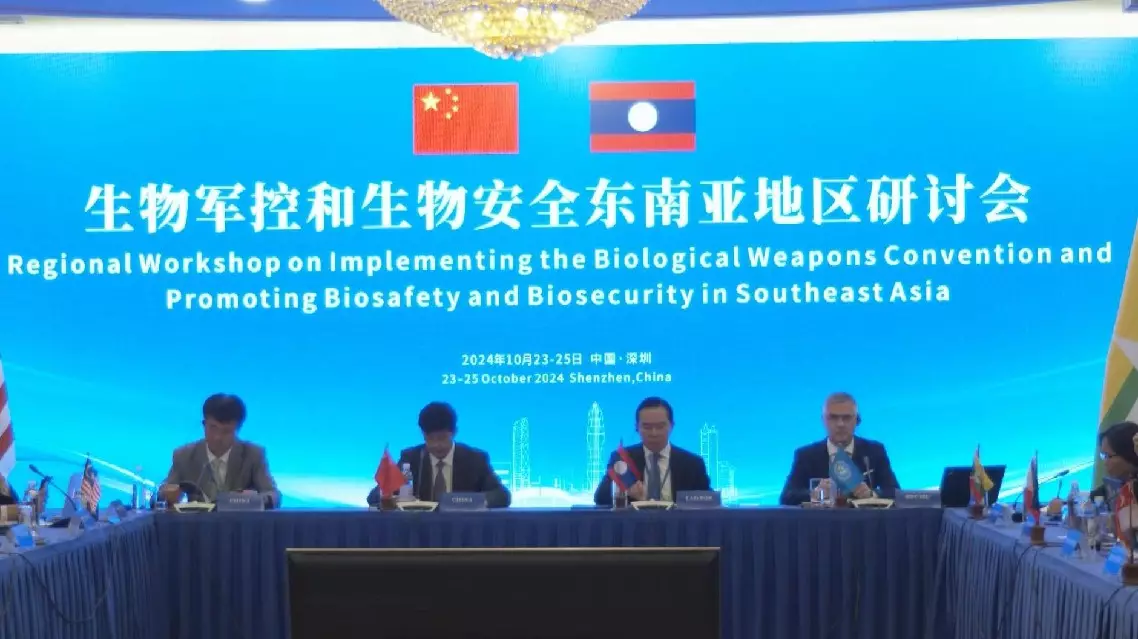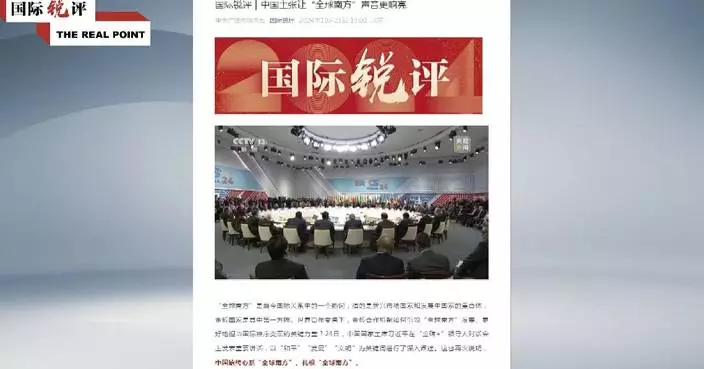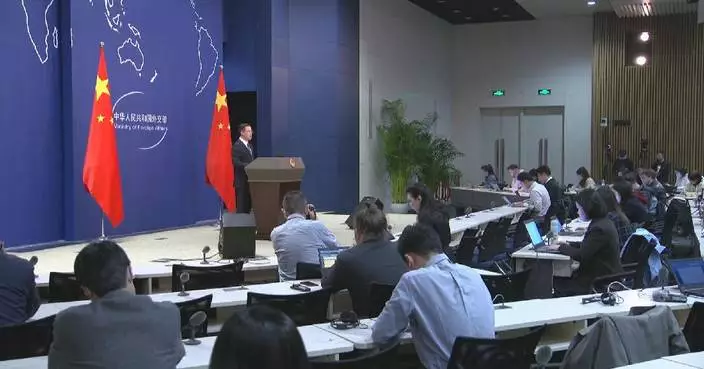China's second domestically built large cruise ship was name Adora Flora City in Guangzhou, Guangdong Province, on Friday.
Surpassing its predecessor, Adora Magic City, in size and overall performance, the new cruise ship, named after Guangzhou's "Flower City" moniker, measures 341 meters in length, has a gross tonnage of 141,900 tonnes, and can accommodate up to 5,232 passengers.
Meanwhile, the number of guest rooms has also increased by 19 to 2,144, with two new desulfurization systems and five sets of advanced environmental protection equipment added to make the entire ship greener and more environmentally friendly.
The overall performance and comfort of the cruise ship have also been comprehensively improved. The ship is equipped with a towering 16-storey living and entertainment area, featuring a large-scale performing arts center, a large canteen, a restaurant with specialties, art galleries, and other abundant leisure and entertainment facilities.
The cruise ship is expected to be delivered by the end of 2026 and start international journeys from Guangzhou in 2027, its owner Adora Cruises Limited said.
The second ship will operate out of its home port of Guangzhou and serve the South China market, according to the company.

China's second homegrown large cruise ship named Adora Flora City
The first Regional Workshop on Implementing the Biological Weapons Convention and Promoting Biosafety and Biosecurity in Southeast Asia was held from Wednesday to Friday in Shenzhen City of south China's Guangdong Province, aiming to strengthen regional coordination and collaboration in biosecurity. The workshop was co-hosted by China and the Lao PDR, with support from the United Nations Office of Disarmament Affairs, and attended by government officials and experts from China and 11 Southeast Asian countries.
As the first national-level meeting of its kind, the workshop provided a platform for exchanging experiences and building consensus on enhancing regional and global biosecurity governance.
"This is a good platform to exchange good lessons and best practices from countries in the region and China. We have been active members of the international community and the party to the convention itself. I think this could further enhance this exchange in the coming years," said Daovy Vongxay, the Lao PDR's permanent representative-designate to the United Nations in Geneva.
The Biological Weapons Convention (BWC), referenced by Vongxay, is the first multilateral disarmament treaty to ban an entire category of weapons of mass destruction, which came into effect in 1975.
In a summary statement from the workshop, the co-chairs emphasized the importance of strengthening the international biosecurity framework, particularly through initiatives that support the BWC.
According to Sun Xiaobo, director general of the Department of Arms Control of Chinese Ministry of Foreign Affairs, China and ASEAN countries share significant consensus and have ample room for collaboration on biosecurity issues.
"Through this workshop, we hope to foster increased dialogue and pragmatic cooperation between China and ASEAN countries in the field of biosafety, contributing together to the construction of a China-ASEAN community with a shared future. This collaboration aims to bolster global governance on biosafety and contribute to world peace and security," Sun concluded.

China hosts first regional workshop on promoting biosafety, biosecurity in Southeast Asia










